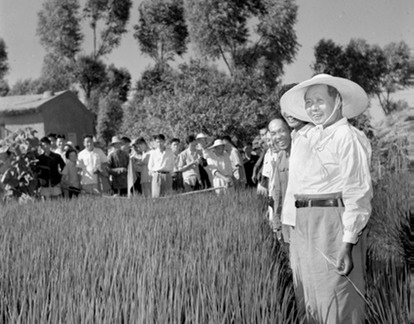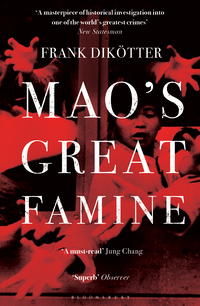Foreign Affairs, 3 November 2010
Scholars already know the high-politics story of how Mao, in his delusion and paranoia, forced his colleagues and the bureaucracy to create the greatest famine in world history by advancing the crazy policies of the Great Leap Forward even after he knew they had failed. Dikötter tells the story with vivid new details from recent memoirs. Then he plunges into even fresher territory, using provincial, county, and city archives to construct the most detailed account yet of the famine on the ground. As the state procured grain and cotton to supply China’s cities, exports, and even foreign aid, local society broke down. People did not just quietly die but were often tortured or persecuted to death. Few methods of cruelty remained to be invented a few years later when the Great Proletarian Cultural Revolution broke out. Based on careful archival forensics, Dikötter concludes that the death toll of the Great Leap Forward was at least 45 million, instead of the 30 million previously generally accepted. His relentlessly clinical, morally intense account of filth, disease, and hunger is both fascinating and numbing. Although the command economy that gave Mao the ability to create the famine is gone, the government continues to force the peasants to sacrifice for the welfare of city dwellers.

